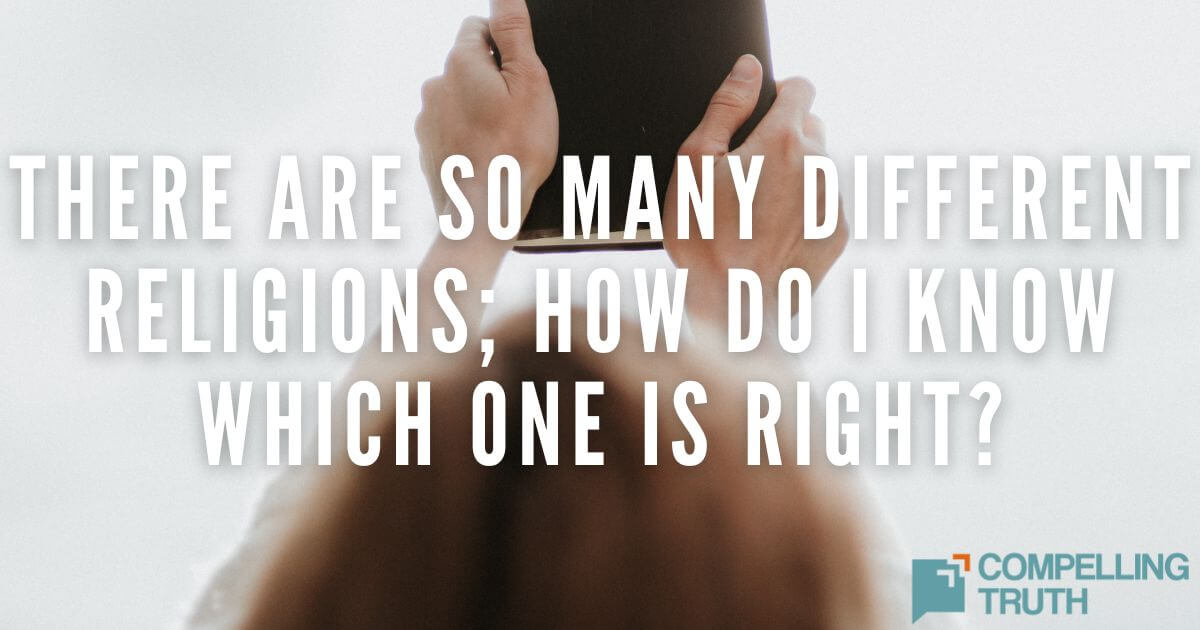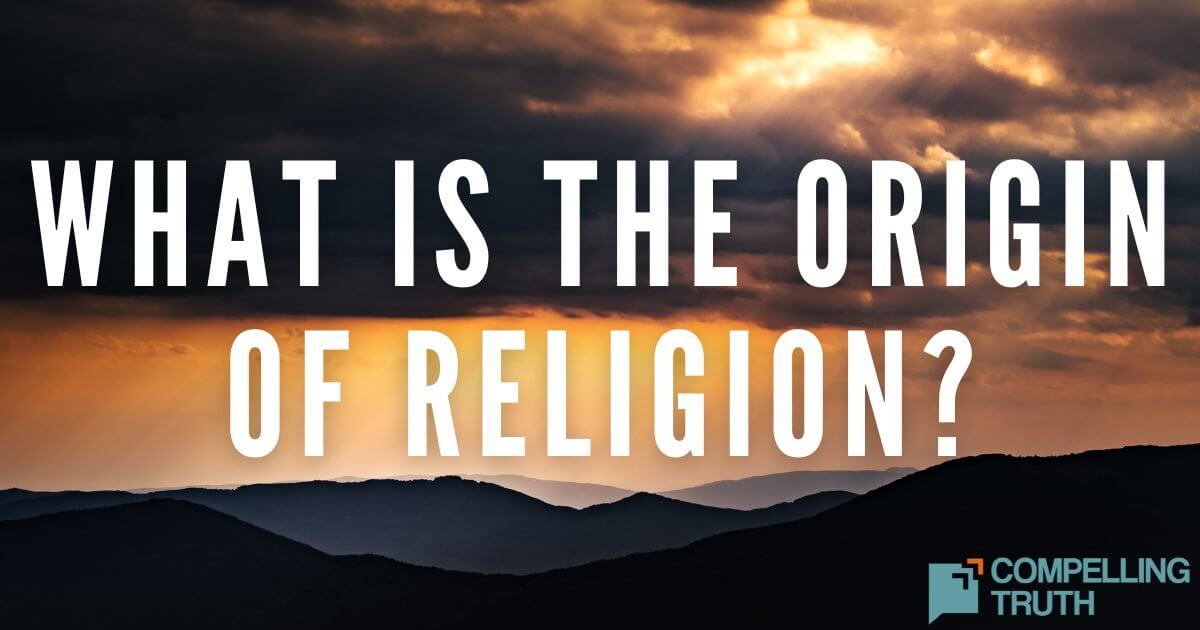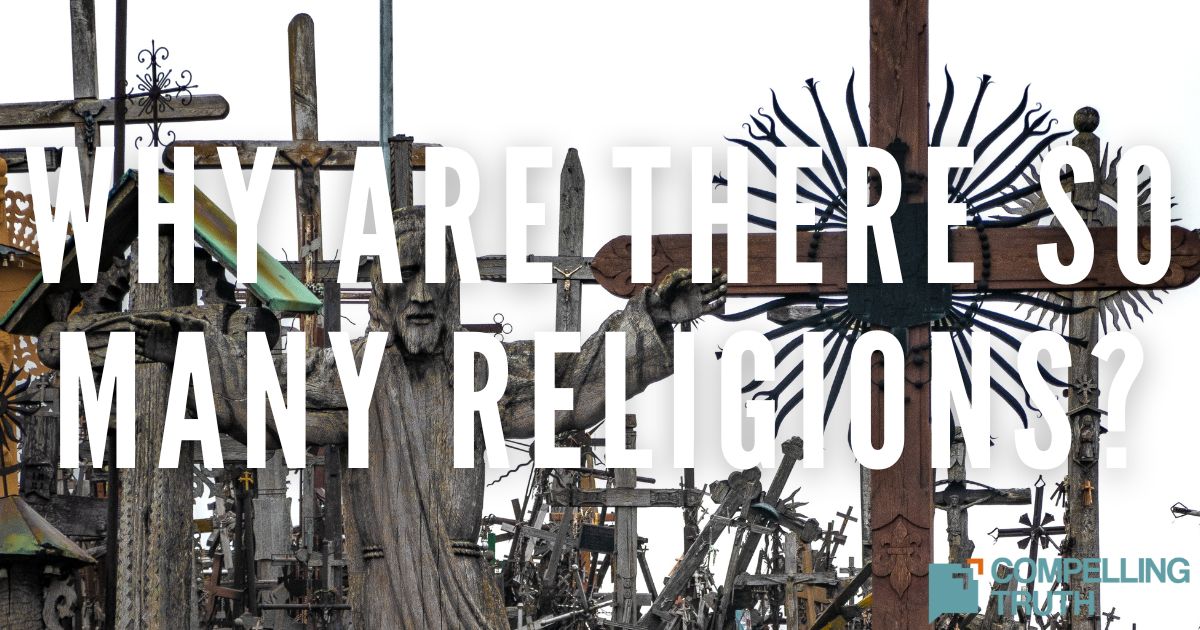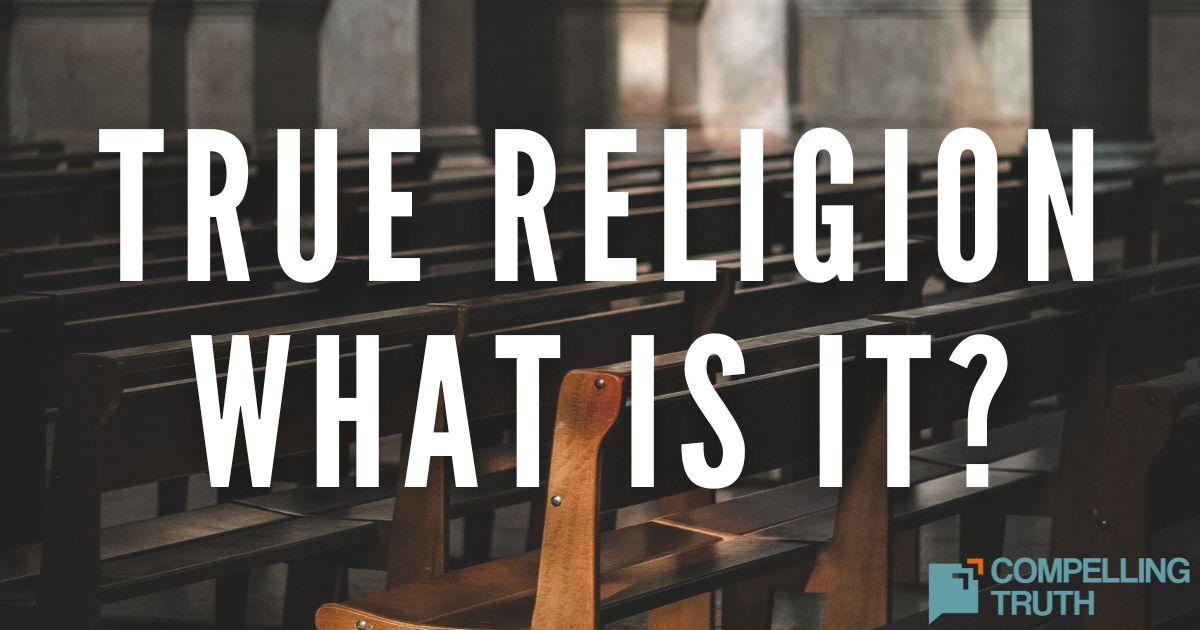While most major religions claim to be motivated by and for peace, we see time and time again throughout history that different religions are unable to coexist peacefully. Why is this?
Different religions adhere to different gods as the one true God, claim different creation stories, have different ideas about how to live, and have different concepts of the coming afterlife. These are foundational concepts to one's worldview, and the fact that each religion believes itself to be the true and right religion will inevitably lead to conflict. Why? Because the hearts and souls of humanity are at stake. So, in short, religions cannot coexist peacefully because of the contradicting beliefs they have combined with the fact that they claim exclusivity—each major religion teaches that it is the only right one.
The major monotheistic religions of Christianity, Judaism, and Islam are frequently the object of this question of religious coexistence. Each of them has had great violence done by them in the name of religion. It is crucial to think critically and ponder if the bloodshed in the name of a religion truly adheres to the teaching of that religion or if it is a twisted derivative from what the religion's true beliefs are.
The Crusades (1096—1272), the Inquisition (1200—1800), and the French Wars of Religion (1562—1598) are all horrendous wars. The Roman Catholic church authorized these wars in the name of Christ; however, when looking at the history, we see that the Inquisition and the French Wars of Religion were aimed at attacking Christians who did not agree with the stances of the Catholic Church. In the words of Noah Webster, "The ecclesiastical establishments of Europe which serve to support tyrannical governments are not the Christian religion but abuses and corruptions of it."
As we look at the teachings of Jesus and the apostles, we see that Christians should live peaceful lives: "Bless those who persecute you; bless and do not curse them. … If possible, so far as it depends on you, live peaceably with all" (Romans 12:14, 18; see also Matthew 5:39). Christians are to forgive others and not seek their own vengeance (Matthew 18:21–22; Romans 12:19–21). The apostle Peter reminds Christians: "Do not repay evil for evil or reviling for reviling, but on the contrary, bless, for to this you were called, that you may obtain a blessing" (1 Peter 3:9).
In modern times, we see supposedly Christian groups, such as Westboro Baptist church, promoting hatred toward people who are living in sin. This is contrary to true Christianity in which we see God's grace bestowed on mankind and His forgiveness that is readily available for all (Ephesians 2:8–9; Romans 3:23; 6:23). God calls Christians to speak the truth about sin and about the gospel, and to always do so in love and with respect (1 Peter 3:15; Ephesians 4:15).
What about Judaism? The majority of the violence associated with Judaism is that done against the Jews. It is true that in the Old Testament God instructed the Jewish people to rid the Promised Land of its pagan inhabitants (Deuteronomy 7:1–5). However, God also instructed the Jewish people to care for foreigners (Exodus 22:21). God even made provision for non-Jews to be accepted into Jewish tribes, such as Ruth the Moabitess, who was an ancestor of King David and of Jesus (Matthew 1:5). God's offer of salvation has always been for all people (Isaiah 42:6; Romans 3:29–30; 10:12; 1 Timothy 2:4). Part of His intention in choosing the Jewish people was to bless all people through them by bringing the Savior through them (Genesis 12:3; Isaiah 49:6; Galatians 3:16).
What about Islam? We see extremist Islamic groups like Isis, taking over regions and invoking terror and torment on the region's inhabitants, committing acts of extreme cruelty in the name of religion. According to some Muslims, these groups are unfortunate derivations that do not truly reflect the religion they name in their exploits. According to some of the terrorists, they are accurately following the Koran.
Sin is the root cause of all religious conflict. All people sin, so conflict can arise in any context. What makes Christianity special is the fact that it addresses the sin within individuals by giving them a totally new heart (2 Corinthians 5:17–21; 1 John 3:9). While Christians may still struggle with sin, they are no longer enslaved to it and can freely show others the love, forgiveness, and grace that God has bestowed on them.
Different religions adhere to different gods as the one true God, claim different creation stories, have different ideas about how to live, and have different concepts of the coming afterlife. These are foundational concepts to one's worldview, and the fact that each religion believes itself to be the true and right religion will inevitably lead to conflict. Why? Because the hearts and souls of humanity are at stake. So, in short, religions cannot coexist peacefully because of the contradicting beliefs they have combined with the fact that they claim exclusivity—each major religion teaches that it is the only right one.
The major monotheistic religions of Christianity, Judaism, and Islam are frequently the object of this question of religious coexistence. Each of them has had great violence done by them in the name of religion. It is crucial to think critically and ponder if the bloodshed in the name of a religion truly adheres to the teaching of that religion or if it is a twisted derivative from what the religion's true beliefs are.
The Crusades (1096—1272), the Inquisition (1200—1800), and the French Wars of Religion (1562—1598) are all horrendous wars. The Roman Catholic church authorized these wars in the name of Christ; however, when looking at the history, we see that the Inquisition and the French Wars of Religion were aimed at attacking Christians who did not agree with the stances of the Catholic Church. In the words of Noah Webster, "The ecclesiastical establishments of Europe which serve to support tyrannical governments are not the Christian religion but abuses and corruptions of it."
As we look at the teachings of Jesus and the apostles, we see that Christians should live peaceful lives: "Bless those who persecute you; bless and do not curse them. … If possible, so far as it depends on you, live peaceably with all" (Romans 12:14, 18; see also Matthew 5:39). Christians are to forgive others and not seek their own vengeance (Matthew 18:21–22; Romans 12:19–21). The apostle Peter reminds Christians: "Do not repay evil for evil or reviling for reviling, but on the contrary, bless, for to this you were called, that you may obtain a blessing" (1 Peter 3:9).
In modern times, we see supposedly Christian groups, such as Westboro Baptist church, promoting hatred toward people who are living in sin. This is contrary to true Christianity in which we see God's grace bestowed on mankind and His forgiveness that is readily available for all (Ephesians 2:8–9; Romans 3:23; 6:23). God calls Christians to speak the truth about sin and about the gospel, and to always do so in love and with respect (1 Peter 3:15; Ephesians 4:15).
What about Judaism? The majority of the violence associated with Judaism is that done against the Jews. It is true that in the Old Testament God instructed the Jewish people to rid the Promised Land of its pagan inhabitants (Deuteronomy 7:1–5). However, God also instructed the Jewish people to care for foreigners (Exodus 22:21). God even made provision for non-Jews to be accepted into Jewish tribes, such as Ruth the Moabitess, who was an ancestor of King David and of Jesus (Matthew 1:5). God's offer of salvation has always been for all people (Isaiah 42:6; Romans 3:29–30; 10:12; 1 Timothy 2:4). Part of His intention in choosing the Jewish people was to bless all people through them by bringing the Savior through them (Genesis 12:3; Isaiah 49:6; Galatians 3:16).
What about Islam? We see extremist Islamic groups like Isis, taking over regions and invoking terror and torment on the region's inhabitants, committing acts of extreme cruelty in the name of religion. According to some Muslims, these groups are unfortunate derivations that do not truly reflect the religion they name in their exploits. According to some of the terrorists, they are accurately following the Koran.
Sin is the root cause of all religious conflict. All people sin, so conflict can arise in any context. What makes Christianity special is the fact that it addresses the sin within individuals by giving them a totally new heart (2 Corinthians 5:17–21; 1 John 3:9). While Christians may still struggle with sin, they are no longer enslaved to it and can freely show others the love, forgiveness, and grace that God has bestowed on them.



